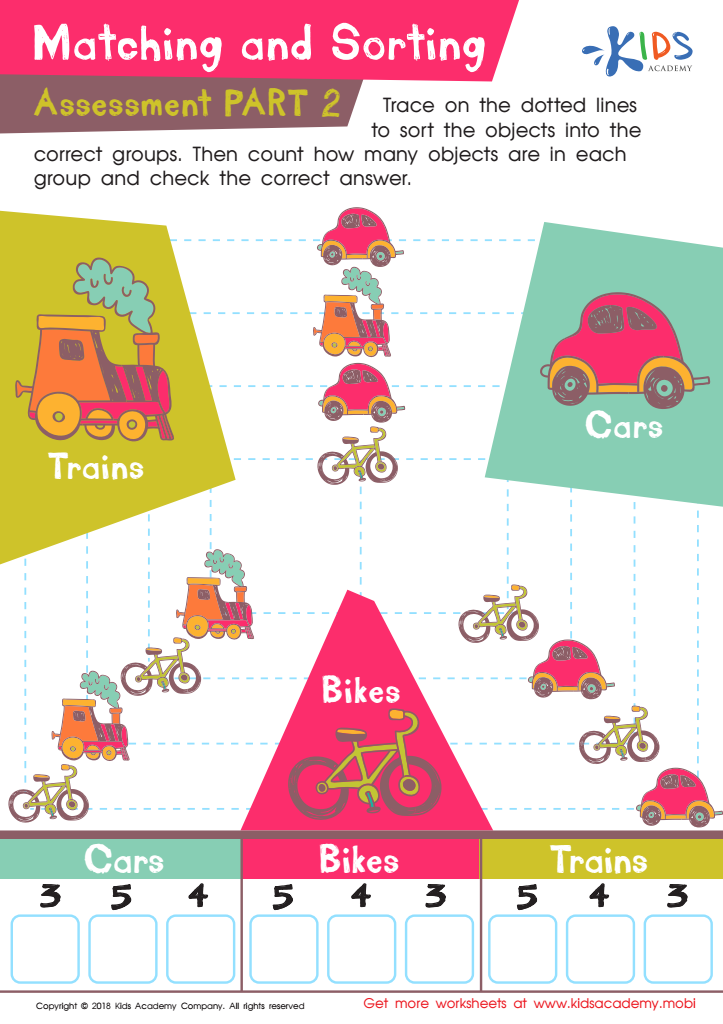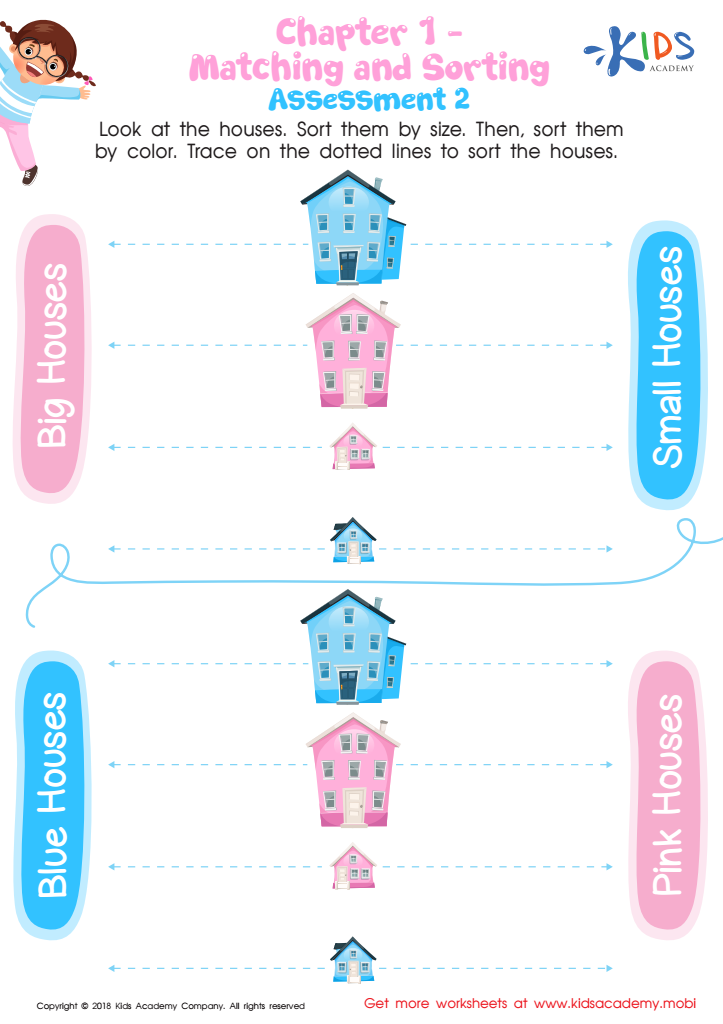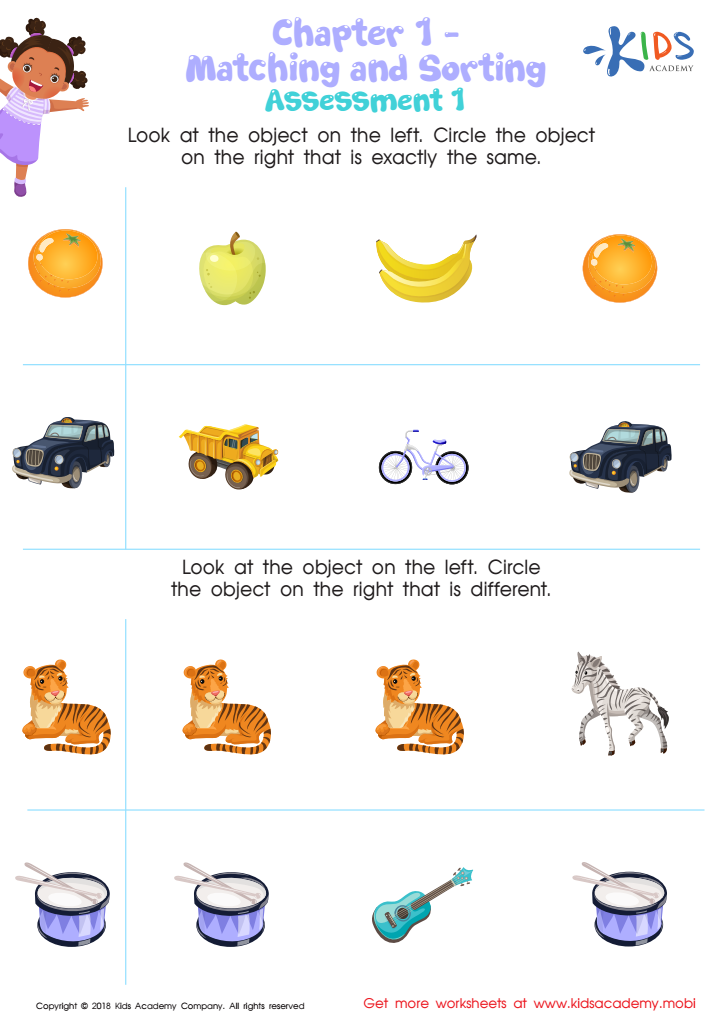Problem-Solving Skills Sorting Worksheets for 4-Year-Olds
4 filtered results
-
From - To
Enhance your 4-year-old’s problem-solving abilities with our engaging sorting worksheets! These fun, interactive activities help young learners develop critical thinking skills while sorting objects based on various attributes. By working on these worksheets, children will sharpen their analytical skills, recognize patterns, and improve their ability to categorize information effectively. The vibrant illustrations and kid-friendly designs make learning enjoyable and foster a love for education. Perfect for parents and educators alike, these problem-solving skills sorting worksheets offer a fantastic opportunity to support early childhood development. Download and get started today to give your child a head start in their learning journey!


Make the Same Pattern Worksheet


Matching and Sorting for Kindergarten: Assessment 2 Worksheet


Matching and Sorting for Preschool: Assessment 2 Worksheet


Matching and Sorting for Preschool: Assessment 1 Worksheet
Problem-solving skills are foundational for early childhood development, making it crucial for parents and teachers to focus on sorting activities for 4-year-olds. At this age, children are naturally curious and eager to explore their surroundings. Engaging them in sorting tasks helps in developing cognitive skills, such as critical thinking, decision-making, and organizational abilities.
Sorting activities can range from categorizing blocks by color or shape to organizing everyday items like fruits or toys. Such tasks promote logical reasoning as children learn to identify similarities and differences, which approximates the structure of more complex problem-solving in later years.
Additionally, sorting encourages language development since children discuss their decisions and learn new vocabulary associated with classification. This foundation is not just beneficial academically; it also fosters socio-emotional skills through cooperative play and turn-taking in group settings.
Moreover, strong problem-solving skills contribute to better overall academic performance, setting a solid groundwork for future learning. By prioritizing sorting and related activities, parents and teachers can cultivate critical skills that will help children navigate life’s challenges effectively, enhancing their confidence and independence. Thus, investing time and resources in these early experiences is essential for well-rounded development.
 Assign to My Students
Assign to My Students
















